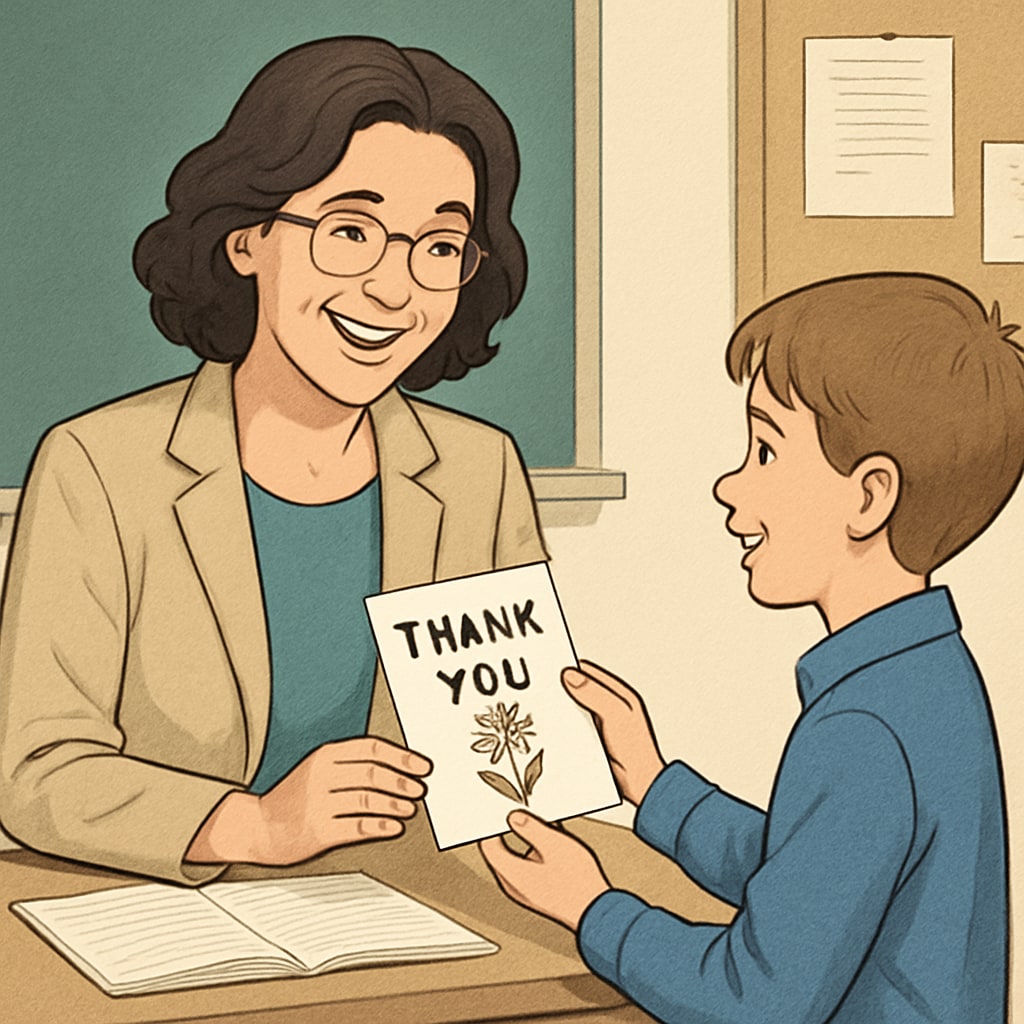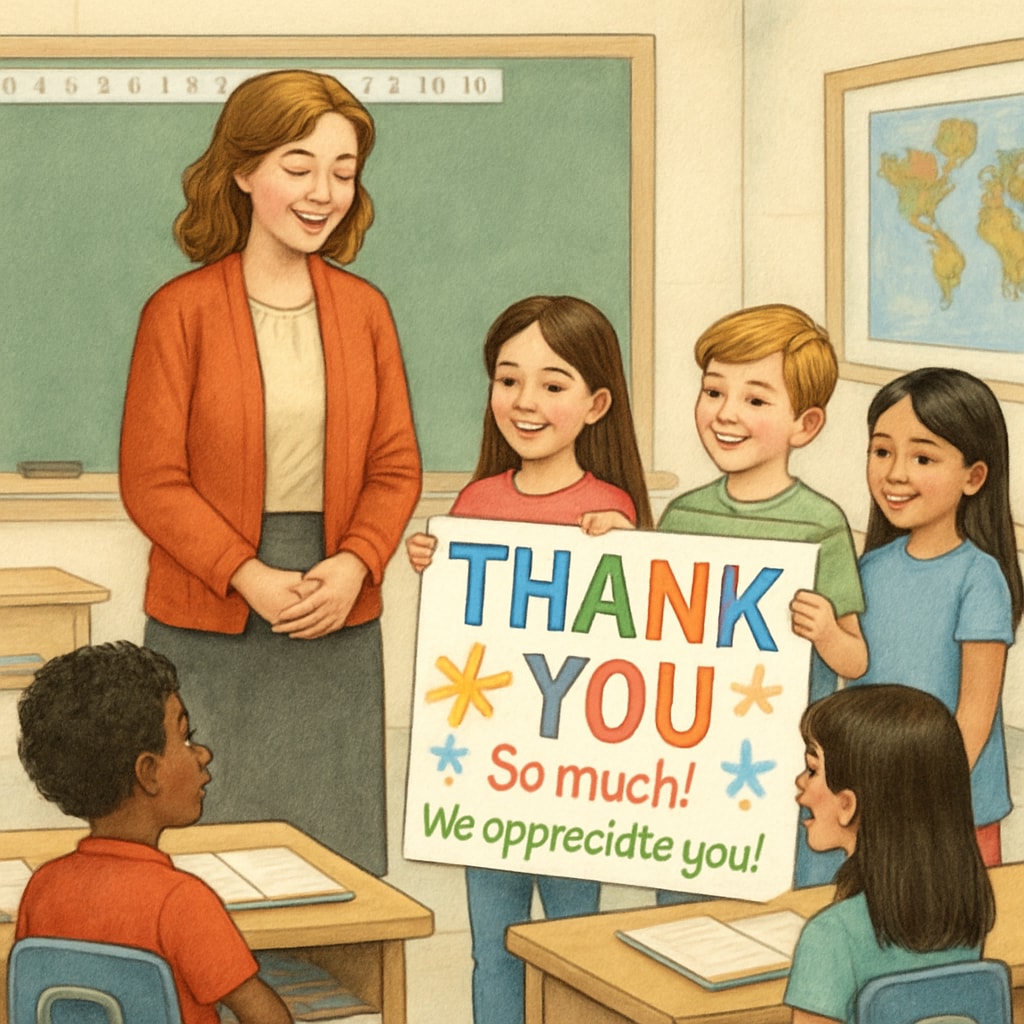In the life of every educator, moments of student gratitude have the power to transform the ordinary into something extraordinary. The simple act of a student saying “thank you” can profoundly affect a teacher’s emotional well-being and career satisfaction. These moments of connection serve as a reminder of the purpose behind their work and highlight the importance of emotional bonds in education. This article explores how expressions of student gratitude impact teachers, fostering mutual respect and building a foundation for effective learning.

The Emotional Power of Student Gratitude
Teachers dedicate themselves to nurturing, guiding, and inspiring their students, often facing challenges such as long hours, limited resources, and emotional exhaustion. However, a genuine expression of gratitude from a student can cut through these challenges, reminding educators of the value they bring to the lives of others. For example, a heartfelt thank-you note or a simple verbal acknowledgment can instill a sense of fulfillment and re-ignite their passion for teaching.
Research has shown that positive reinforcement, such as student appreciation, contributes to higher levels of teacher job satisfaction and emotional resilience. According to a study published by Britannica, emotional connections between students and teachers create an environment conducive to learning, fostering mutual respect and understanding.
How Gratitude Strengthens Teacher-Student Bonds
The act of expressing gratitude is not just beneficial for teachers; it also strengthens the teacher-student relationship. When students acknowledge the efforts of their educators, it builds a culture of respect and appreciation in the classroom. Teachers often feel more motivated to engage with their students and invest in their personal and academic growth.
For example, a teacher who receives positive feedback from their students is likely to approach future lessons with greater enthusiasm. This reciprocal relationship helps cultivate an atmosphere where students feel valued and supported, making them more eager to learn and participate actively.

Transformative Moments: Gratitude as a Catalyst for Growth
Student gratitude can also serve as a catalyst for personal and professional growth. When teachers feel appreciated, they often reflect on their teaching methods and seek new ways to improve their practice. As a result, classrooms become spaces of innovation, adaptability, and creativity.
Moreover, gratitude creates a ripple effect. Teachers inspired by appreciation are more likely to model empathetic and kind behaviors, which students, in turn, learn to emulate. This cycle of mutual respect and compassion enhances the overall emotional climate of the school, benefiting everyone involved.
For educators, these transformative moments often become cherished memories, reinforcing their commitment to shaping future generations. As noted by Wikipedia, teacher-student relationships grounded in mutual respect and emotional connection lead to better educational outcomes and enriched experiences.
Practical Ways to Foster Gratitude in Education
Creating an environment where gratitude is regularly expressed requires effort from both students and teachers. Here are some practical tips to encourage appreciation in the classroom:
- Encourage Gratitude Practices: Teachers can incorporate activities such as gratitude journals or thank-you notes into their lessons.
- Model Appreciation: When teachers show gratitude for their students’ efforts, they set an example for positive communication.
- Celebrate Achievements: Recognizing milestones and accomplishments in the classroom fosters a culture of mutual respect.
- Open Communication Channels: Encouraging students to share their thoughts and feelings with teachers builds trust and emotional connection.
By cultivating these practices, schools can create a supportive environment where gratitude becomes a natural part of daily interactions.
Conclusion: Gratitude’s Lasting Impact
In the end, student gratitude is more than just a kind gesture; it is a powerful force that shapes the emotional and professional lives of educators. A simple “thank you” can light up a teacher’s day, reminding them of the profound impact they have on their students’ lives. By fostering emotional connections and mutual respect, gratitude creates a foundation for effective education and lifelong learning.
In the words of an experienced teacher, “It’s not the lessons I teach but the relationships I build that truly matter. Every heartfelt ‘thank you’ from a student is a reminder of why I chose this profession.”
As educators continue to shape minds and hearts, let us remember the transformative power of appreciation and its ability to strengthen teacher-student bonds for generations to come.


